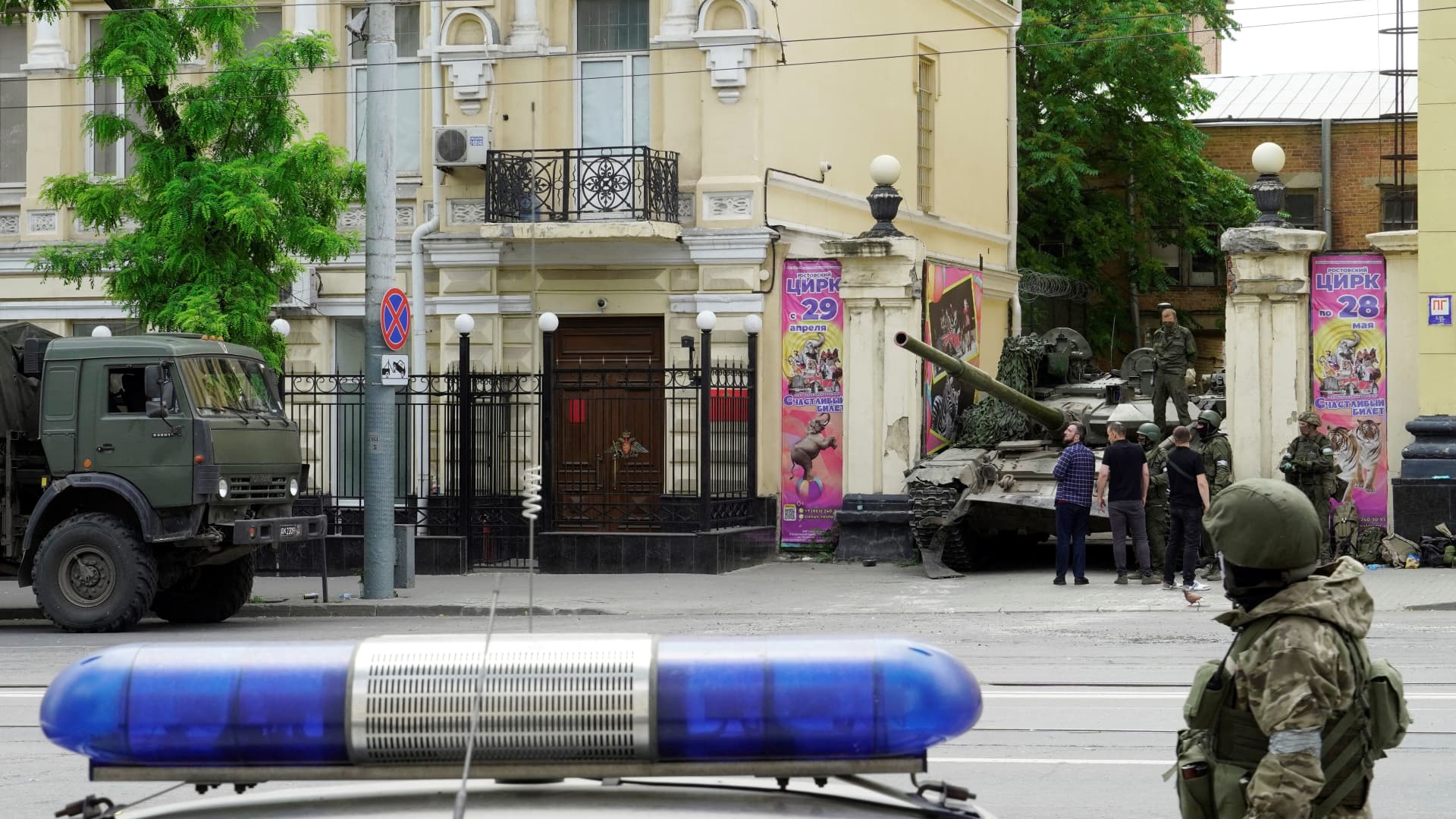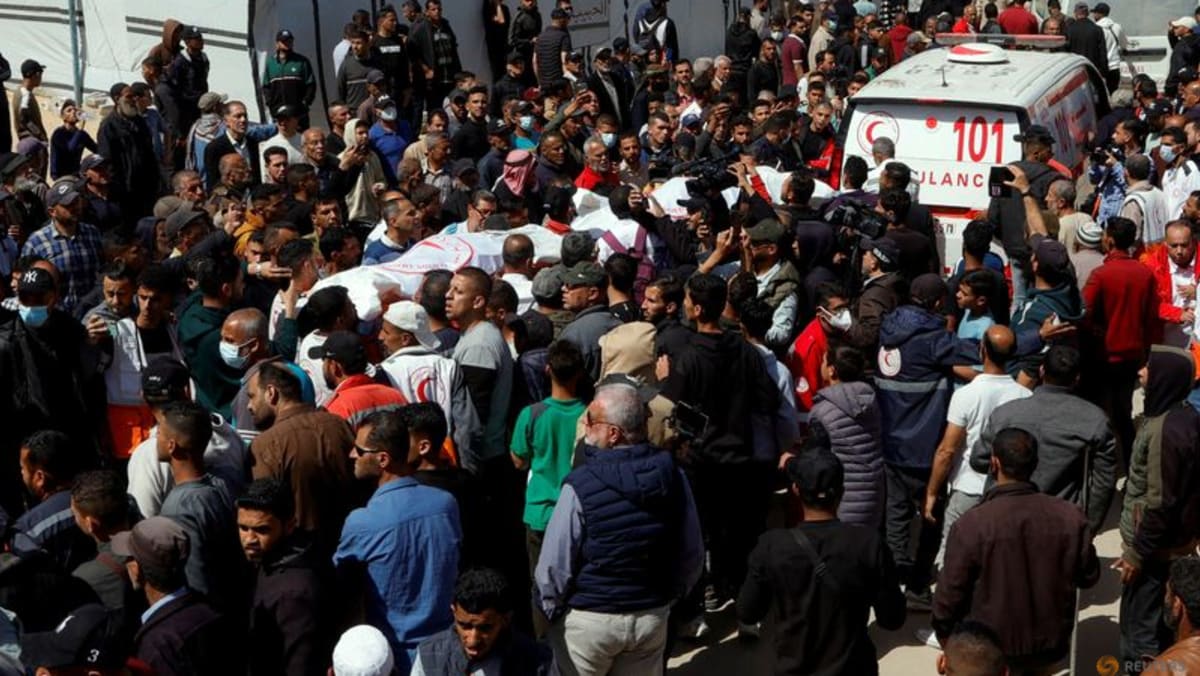Russian mercenary chief Yevgeny Prigozhin is a “dead man walking” after leading a botched rebellion against Vladimir Putin, according to Ian Bremmer, president of Eurasia Group.
The weekend’s armed revolt by Prigozhin, a former Putin ally who founded the Wagner private militia group, was widely seen as the biggest threat to the Russian president’s 23-year grip on power. U.S. Secretary of State Antony Blinken said the episode exposed “cracks” in the Kremlin that was not previously seen.
Prigozhin is “kind of dead man walking at this point,” Bremmer said on “Squawk Box Asia” Monday. “I would be very surprised that he’s still with us in a few months’ time.”
This Prigozhin-led revolt was unprecedented new ground for Putin, who had until then been able to swiftly put out the occasional unarmed protest. On the weekend, the Wagner mutineers got within 200 kilometers from the capital of Moscow before their leader made the abrupt announcement to abort the mission.
Anyone that believes that Putin is suddenly is on the brink of leaving power, also needs to recognize that’s not where we are.
Ian Bremmer
president, Eurasia Group
“Putin has imprisoned and assassinated people for far less than what Prigozhin has done to him,” Bremmer added. “It’s inconceivable to me that Putin will allow him to live any longer than is absolutely necessary.”
The Wagner fighters’ march toward Moscow sent the Kremlin scrambling to protect the capital after the mercenaries reportedly, in a matter of hours, took control of the southwestern Russian city of Rostov-on-Don.
Rostov is strategically symbolic as the seat of the Southern Military District for the Russian military, a logistical and command hub for Putin’s war on Ukraine.
Wagner mercenary fighters patrol the center of Rostov-on-Don — a hub for Russia’s Ukraine campaign — after it had taken over key facilities on June 24, 2023 as part of an armed rebellion.
Stringer | Afp | Getty Images
As part of the deal brokered by Belarusian President Alexander Lukashenko, Prigozhin would go into exile in Belarus in exchange for calling off the insurrection. The Kremlin agreed to drop the criminal case against Prigozhin, according to the state controlled outlet TASS.
“Obviously this does show a level of unprecedented weakness for President Putin,” Bremmer said.
“But at the same time, while Putin was unprecedently tested, there was not a single high-level defection from the Russian military, from the Russian government or among the Russian oligarchs — so anyone that believes that Putin is suddenly is on the brink of leaving power, also needs to recognize that’s not where we are,” he added.
The bitter feud between Prigozhin and the military establishment in Moscow escalated in recent weeks after the Kremlin wanted all private mercenary forces to sign contracts with the Defense Ministry by July 1. Prigozhin had refused.
The standoff spilled into the open when Prigozhin launched an armed rebellion on Friday after accusing the Russian army of firing at his mercenaries.
“Prigozhin’s objective was to draw Putin’s attention and to impose a discussion about conditions to preserve his activities — a defined role, security, and funding,” Tatiana Stanovaya, a senior fellow at the Carnegie Russia Eurasia Center, wrote on Twitter.
“These weren’t demands for a governmental overthrow; they were a desperate bid to save the enterprise, hoping that Prigozhin’s merits in taking Bakhmut … would be taken into account and the concerns would catch Putin’s serious attention,” she added.
The Wagner fighters have been a significant force in Putin’s war against Ukraine, and played an important role in the capture the eastern city of Bakhmut.




















Discussion about this post